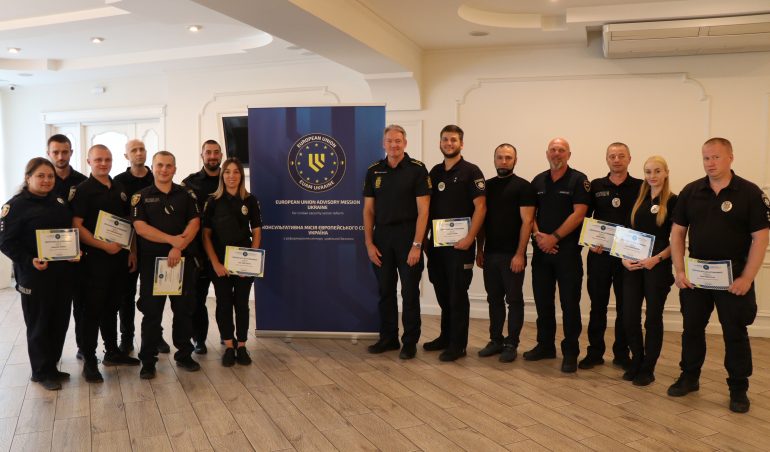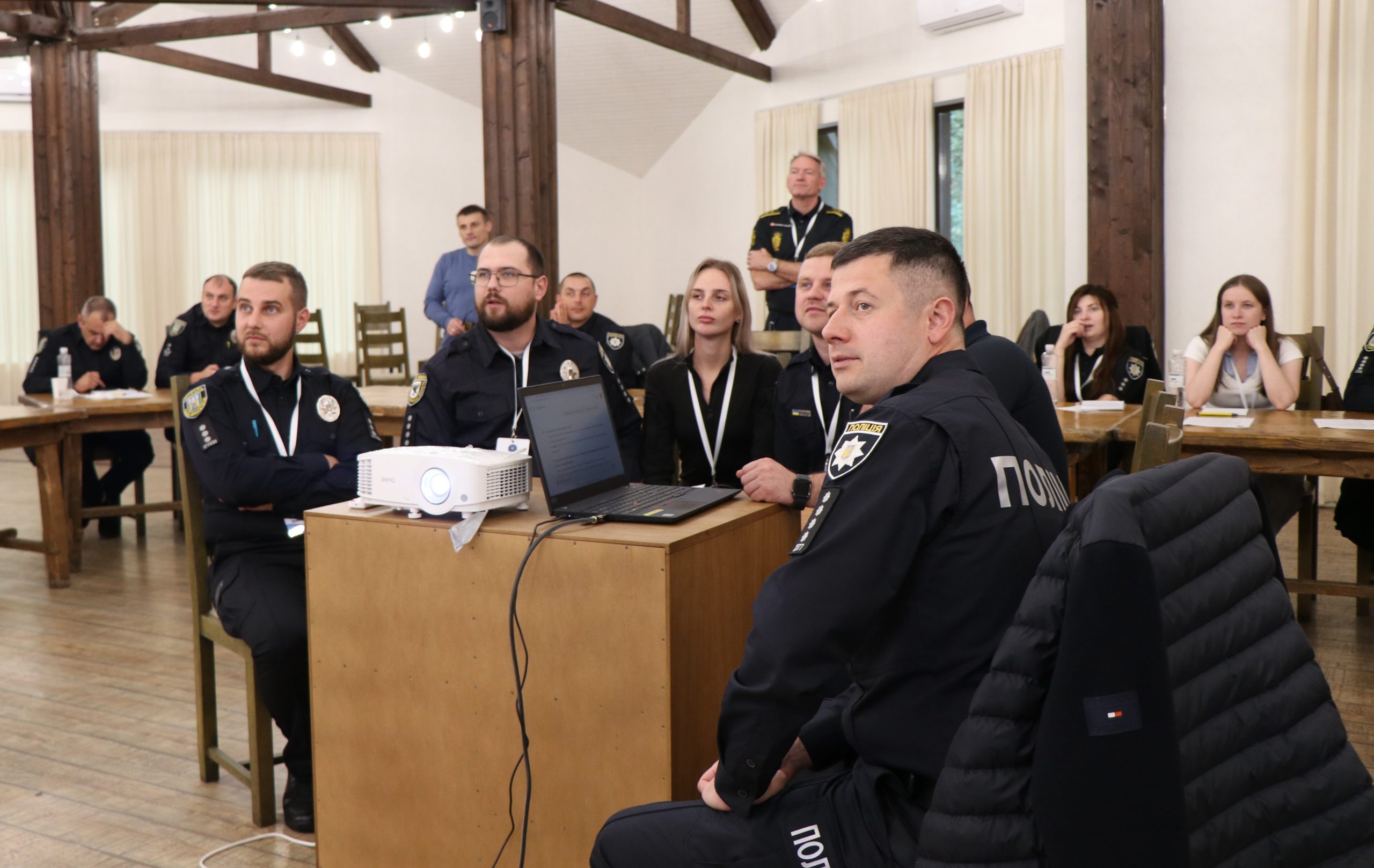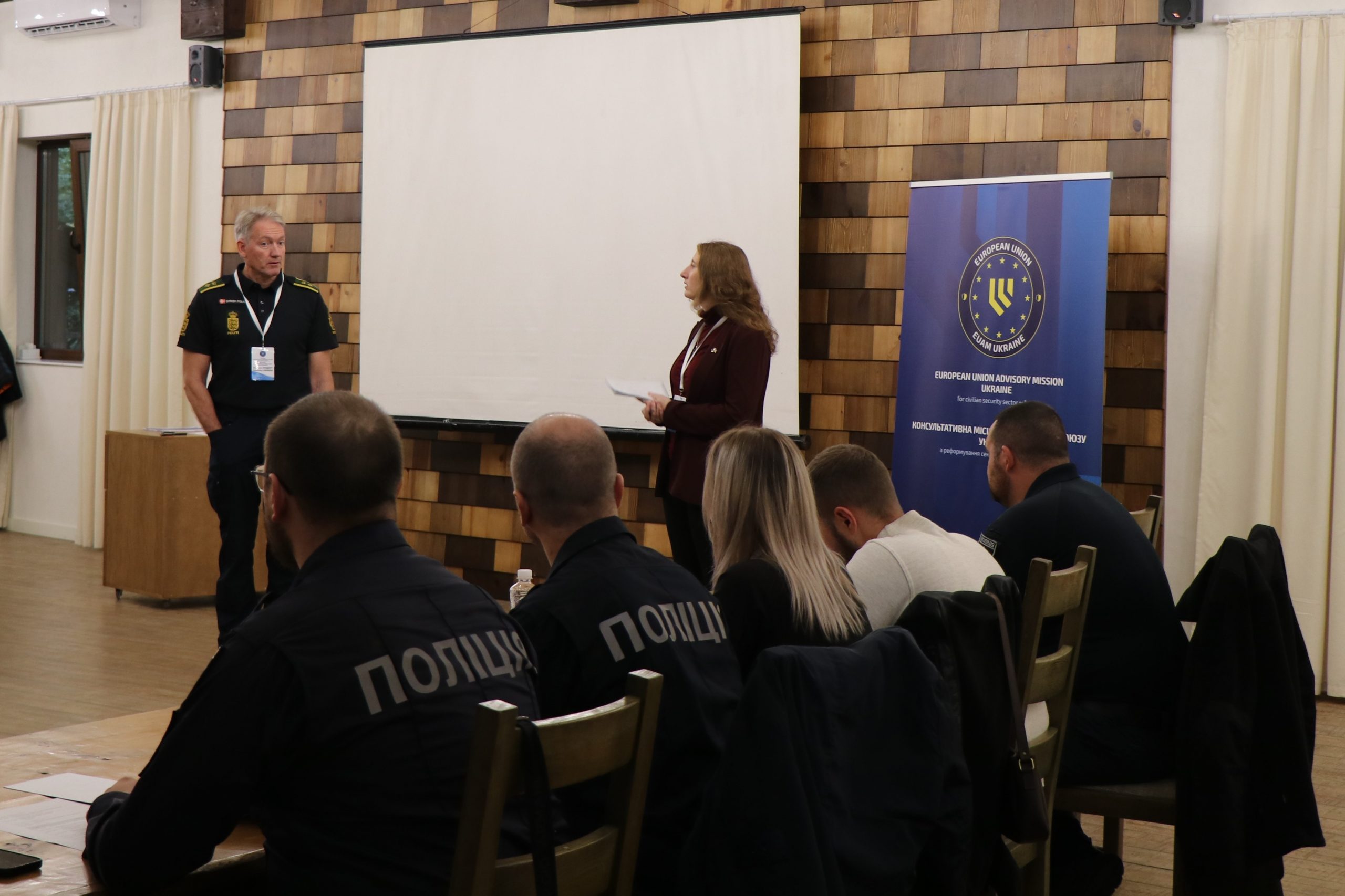Addressing Invisible Wounds: EUAM Ukraine Equips Police with Tools to Respond to PTSD-Related Crises
October 10, 2024
As thousands of veterans return to civilian life after defending their homeland on the front lines, Ukrainian society faces a new challenge. With the trauma of war often leaving deep, invisible wounds, many veterans – and even active police and military personnel – are at increased risk of developing post-traumatic stress disorder (PTSD). This complex condition, if not properly treated, can manifest itself in ways that can escalate into crisis situations, putting both the individuals and their communities at risk.
Recognising this growing need, EUAM Ukraine has stepped up its support to law enforcement officers by conducting specialised training workshops aimed at enhancing the capacity of police to identify and respond to PTSD-related crises. The first of these workshops, held recently in Lviv and Ternopil, brought together police officers from the Western Ukrainian regions, including representatives from Quick Response Teams, 102 Centres, Duty Offices, Operatives, District Police Officers, Territorial Community Police Officers (TCPOs), Patrol Police etc. The aim: to equip those on the frontline of public safety with the knowledge and skills necessary to handle such sensitive situations with empathy and professionalism.
Why Now?
As Ukraine continues to defend itself amidst the ongoing war, the number of veterans, active duty personnel and even civilians exposed to traumatic events is growing. This means that law enforcement, often the first point of contact in emergencies, must be prepared to deal with PTSD related crisis situations that could lead to aggressive or unpredictable behaviour. It’s no longer just about maintaining order; it’s about saving lives – both of those affected and those around them.
“Dealing with PTSD is no easy task. It requires a deep understanding of the psychological scars left by war and the ability to defuse potential crises before they escalate. With the right training and tools, law enforcement officers can provide crucial support to veterans as they reintegrate into peaceful communities,” said Ihor Patiyuk, police psychologist from Lviv, who co-facilitated the workshop.
A Practical Approach to Complex Problems
During the workshops, participants were introduced to different aspects of PTSD – its triggers, symptoms and effects – and explored how it can affect a person’s behaviour. Through practical exercises, they practised de-escalation techniques and learned to respond calmly and constructively in tense situations. The training also focused on improving communication skills, teaching officers to recognise when a person is in crisis and how to approach them using strategies based on active listening.

What makes this training unique is the use of artificial intelligence (AI) tools to simulate real-life scenarios, helping officers hone their skills in real time. “The use of AI provides a safe yet realistic environment where officers can learn and adapt their responses based on simulated crisis situations. This kind of preparation can make all the difference when faced with similar scenarios in the field,” added Patiyuk.
Sharing Experiences to Build a Stronger Response Network
The workshops also served as a platform for officers to share their experiences of dealing with PTSD-related crises, learning from each other’s successes and setbacks. This sharing of real-world knowledge is crucial to building a robust network of first responders prepared to deal with the complexities of PTSD in different regions.

Building on this initial success, EUAM Ukraine plans to expand these workshops to other regions, including Zakarpattia, Chernivtsi, Volyn, and Rivne. By strengthening law enforcement’s crisis response capabilities, the Mission aims to contribute to a safer environment for both veterans and their communities as Ukraine continues to navigate the challenges of war and reconstruction.
‘We are ready to share the experience of the police officers from the EU member state in addressing such issues. Our goal is to help save as many lives as possible’, noted Flemming LUNDBERG, FO Lviv Senior Advisor on General Policing
For EUAM, supporting Ukrainian partners in this area is more than a task; it’s a commitment to the future stability and well-being of the nation. Through initiatives such as these, the Mission is working to ensure that law enforcement officers are not only prepared to deal with PTSD-related crises, but also empowered to become allies to those transitioning from the trauma of war to the hope of peace.


